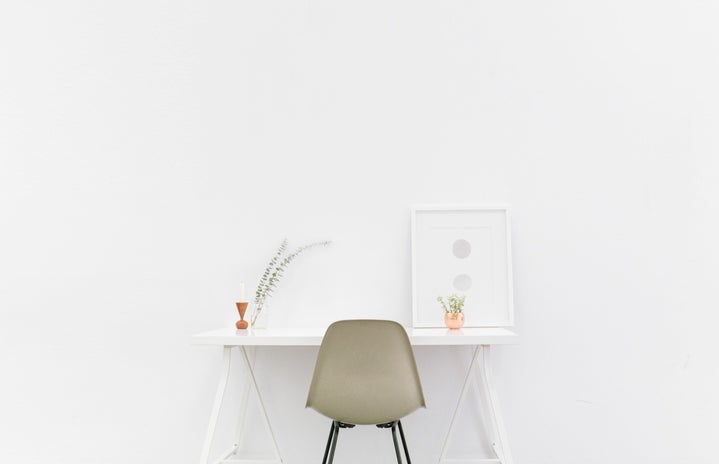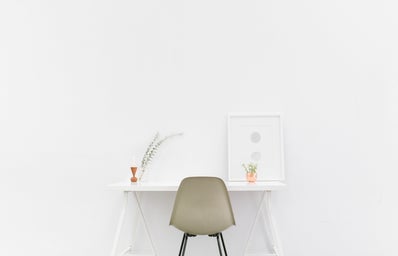There are hundreds of different lifestyle trends out there, most of which are urging you to reinvent yourself in various ways in order to improve your quality of life. While most tend to be quick fads, the ‘minimalism’ trend has stuck. We’ve seen it in fashion, technology and in homes, but what does it really mean to be a minimalist and can it really help you find ‘lasting’ happiness?
- What is Minimalism?
-
First things first, minimalism is not owning less than 50 things. It doesn’t have to mean selling your car and house and moving out of civilisation, or even getting rid of your valuable belongings no matter how sentimental they are. The focus for minimalists is on decluttering and clearing up space for what truly matters in your life.
So, minimalism can be about living with less, but not just less for the sake of it. The key is acknowledging the things you truly need and value in life and the things you don’t. Whether that’s getting rid of your tech gadgets or simply by decluttering your wardrobe to save time picking between outfits in the morning. The emphasis should be on the fact that minimalism is a practice to help declutter areas of your life, however, you see fit.
The idea behind minimalism is that by decluttering you essentially give yourself space to ‘breathe and refocus’. Having tons of unnecessary items and material possessions won’t really bring value to our lives. As minimalists argue, it’s only when we get rid of all this stuff that we have the opportunity to really appreciate what truly matters in our lives.
- The Science Behind It
-
There’s even some scientific evidence to support these minimalist claims. We’re always being sold stories of miserable lottery winners who claim that their winnings didn’t bring them ‘lasting happiness’. Whilst these are extreme cases of materialism, studies have shown that materialistic items are only useful in bringing about short-term happiness and in fact, materialistic tendencies are actually linked to low self-esteem.
- Reassess Your Priorities
-
Material items are temporary, there’s always something new or something ‘better’ out there. Whether it be new technology, new fashion trends or a bigger house and a better car. All of these create an endless pursuit of trying to keep up with these cycles, which can become exhausting, and result in a constant feeling of dissatisfaction. Minimalist blogger Colin Wright argues that by stripping away these excesses in our lives, we can reassess our priorities and make time and space for experiences that actually bring value to our lives.
- How Minimalism Could Help You
-
So, there’s clearly a strong case for the benefits of minimalism, but how can you introduce minimalism into your life?
It’s important to note that as previously stated, minimalism is a subjective process. You shouldn’t feel pressured to get rid of things that matter to you because that’s not what minimalism is about. Minimalism is a concept that can be adapted to suit your needs, and you can implement it into your life however you see fit.
That being said, there are some general steps you could take to get you started.
- Ask Yourself Some Important Questions
-
What areas are you looking to declutter and why? Are you looking to drastically change your lifestyle or simply adopt better shopping habits? Answering some of these key questions can help identify some of your goals within this process in order to show which areas of your life you want to change.
- Do Your Research!
-
Minimalism is personal, but even after you’ve established your own goals, it can be difficult to know where to start. There are so many useful resources that can help you minimalize efficiently. For example, if you’re looking to organise your space the ‘Tidying Up With Marie Kondo’ Netflix documentary is really helpful, especially if you’re struggling to declutter. Or if you’re looking for further minimalist inspiration, Joshua Millburn and Ryan Nicodemus aka ‘The Minimalists’ offer some useful guides on their blog for beginner minimalists.
- Set Some Rules
-
Having recognised your goals, and done your research, it’s important that you implement some structure into how you’re going to go about minimalizing. You should not be too strict on yourself as this won’t be sustainable. But, setting a couple of rules can help you keep on track and ensure you don’t fall back into old habits.
It’s clear that there are a number of reasons to implement minimalist habits into your lifestyle. Decluttering your environment can help remove unnecessary stress and provide you with clarity to see what really matters to you. As long as you remember that there’s not one minimalist structure that you need to live by, minimalism can be a useful way to improve your day-to-day life.
Words by Tara N West.
Edited by Alice Colton.


